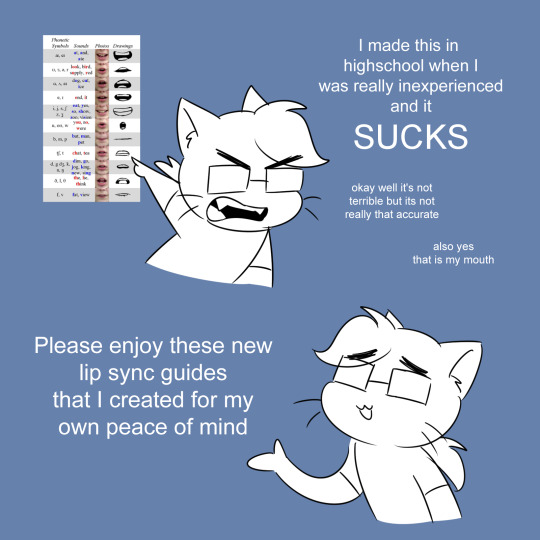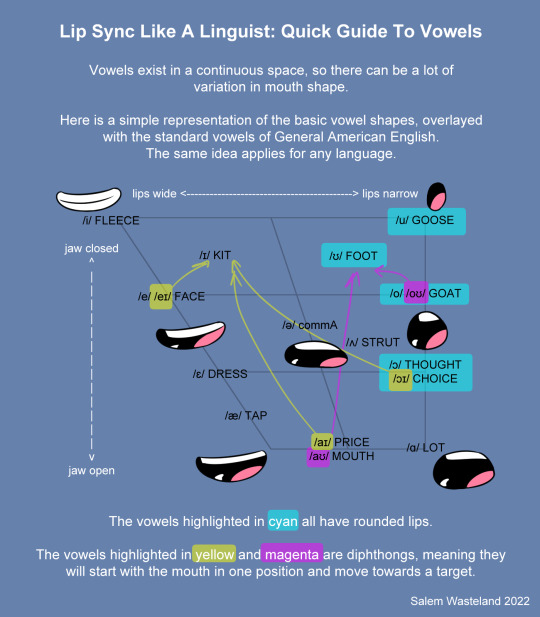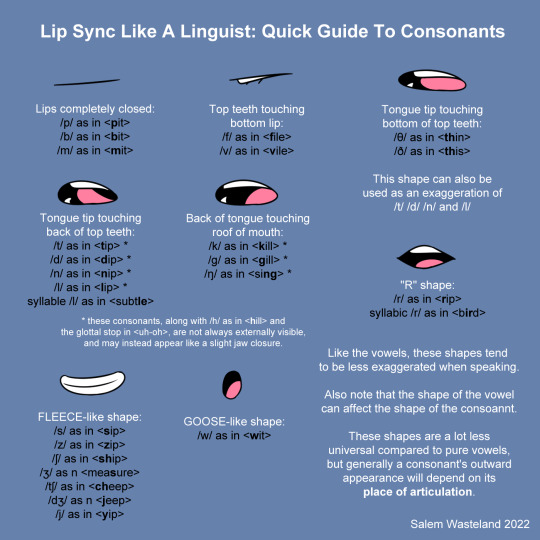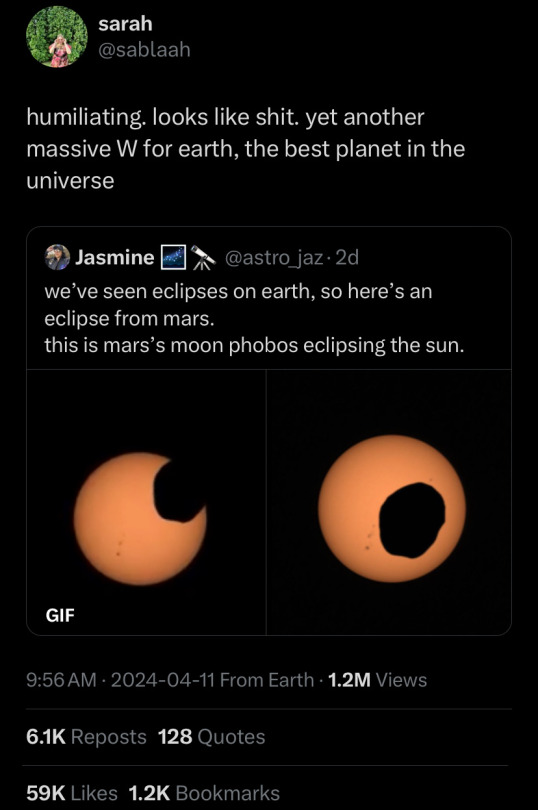Text
‘Pretentious Quote’: JSTOR and the Rise of Predictable Article Titles
4K notes
·
View notes
Text
opening a grammar book as a beginner: oh my god what the fuck is that
opening a grammar book as an intermediate: pff. i know it all now
opening a grammar book as an advanced learner: THERE'S A RULE???? i do this at random
644 notes
·
View notes
Text
Studying linguistics is actually so wonderful because when you explain youth slang to older professors, instead of complaining about how "your generation can't speak right/ you're butchering the language" they light up and go “really? That’s so wonderful! What an innovative construction! Isn't language wonderful?"
21K notes
·
View notes
Text
Every single person studying a language when they recognize the most basic word of the language in a text or a video

59K notes
·
View notes
Text
I totally get the whole “New year, new me” thing and a chance for a positive start. I just want you to know if your year starts off bad or you mess up a resolution that it’s okay. You don’t need a new year to make a change. You can do it anytime. And if you screw up, it’s okay. You can still try again tomorrow.
#i queued this on new year because many people need this reminder later in the year#especially for things like languages#so here i go#esperando las tortillas
3K notes
·
View notes
Text
Brazilian Portuguese basic house vocabulary :
Janela(f)=window
Porta(f) =door
SOFÁ (m)=sofa
Mesa de centro/centro(f) = coffee table
Estante (f)=living room shelves
Cadeira(f) = chair
Mesa (f)= table
Estante de livros (f)=bookshelf
Prateleira (f)=shelf
Cama (f)= bed
Armário de cozinha (f)=kitchen's cabinet
Mesa de cabeceira(f) = bedside table
Mesa de jantar(f) =dining table
Penteadeira (f)= dressing table
Guarda-roupa(m) =wardrobe
Cômoda(f) =chest of drawers/dresser
Microondas=microwave
Gaveta (f)=drawer
Cortinas (f plural) =curtains
Banco/tamborete (m)=stool
Fogão(m)=stove
Pia (f)= sink
Som (f) =stereo
Vaso (m)= vase
Forno(m) =oven
Congelador(m) =the freezer of the fridge
Freezer (m)= freezer
Cafeteira(f)= coffee maker
Liquidificador (f)=blender
Batedeira(f)=mixer
Coifa(f)=range hood
Chuveiro(f) = shower
Banheira(f) = bathtub
Vaso sanitário/privada (m,f)=toilet
Geladeira (f)= fridge
91 notes
·
View notes
Text
big fan of The Dictionary, the mythical entity that prescriptivists believe exists. I am always learning more about the beliefs surrounding it
10K notes
·
View notes
Text
I love you phonetics I love you descriptivism I love you minority languages I love you dialects I love you accents I love you suffixes and prefixes I love you fossil words I love you outdated letters and pronouns I love you etymology I love you preservation of endangered languages I love you visible remnants of the way a language used to be I love you linguistics
8K notes
·
View notes
Text
Funniest thing about the "chai tea" meaning "tea tea" to me is that I'm Czech and the Czech word for tea is "čaj" which is pronounced "chai" and you know what we actually - no joke - call chai tea?
"chai čaj"
We literally call it chai chai we DO call it tea tea we literally pronounce it chai chai it's a thing
6K notes
·
View notes
Text
Naming International POC Characters: Do Your Research.
This post is part of a double feature for the same ask. First check out Mod Colette's answer to OP's original question at: A Careful Balance: Portraying a Black Character's Relationship with their Hair. Below are notes on character naming from Mod Rina.
~ ~ ~
@writingraccoon said:
My character is black in a dungeons and dragons-like fantasy world. His name is Kazuki Haile (pronounced hay-lee), and his mother is this world's equivalent of Japanese, which is where his first name is from, while his father is this world's equivalent of Ethiopian, which is where his last name is from. He looks much more like his father, and has hair type 4a. [...]
Hold on a sec.
Haile (pronounced hay-lee), [...] [H]is father is this world’s equivalent of Ethiopian, which is where his last name is from.
OP, where did you get this name? Behindthename.com, perhaps?

Note how it says, “Submitted names are contributed by users of this website. Check marks indicate the level to which a name has been verified.” Do you see any check marks, OP?
What language is this, by the way? If we only count official languages, Ethiopia has 5: Afar, Amharic, Oromo, Somali, & Tigrinya. If we count everything native to that region? Over 90 languages. And I haven't even mentioned the dormant/extinct ones. Do you know which language this name comes from? Have you determined Kazuki’s father’s ethnic group, religion, and language(s)? Do you know just how ethnically diverse Ethiopia is?
~ ~ ~
To All Looking for Character Names on the Internet:
Skip the name aggregators and baby name lists. They often do not cite their sources, even if they’re pulling from credible ones, and often copy each other.
If you still wish to use a name website, find a second source that isn’t a name website.
Find at least one real life individual, living or dead, who has this given name or surname. Try Wikipedia’s lists of notable individuals under "List of [ethnicity] people." You can even try searching Facebook! Pay attention to when these people were born for chronological accuracy/believability.
Make sure you know the language the name comes from, and the ethnicity/culture/religion it’s associated with.
Make sure you understand the naming practices of that culture—how many names, where they come from, name order, and other conventions.
Make sure you have the correct pronunciation of the name. Don’t always trust Wikipedia or American pronunciation guides on Youtube. Try to find a native speaker or language lesson source, or review the phonology & orthography and parse out the string one phoneme at a time.
Suggestions for web sources:
Wikipedia! Look for: “List of [language] [masculine/feminine] given names,” “List of most common [language] family names,” “List of most common surnames in [continent],” and "List of [ethnicity] people."
Census data! Harder to find due to language barriers & what governments make public, but these can really nail period accuracy. This may sound obvious, but look at the year of the character's birth, not the year your story takes place.
Forums and Reddit. No really. Multicultural couples and expats will often ask around for what to name their children. There’s also r/namenerds, where so many folks have shared names in their language that they now have “International Name Threads.” These are all great first-hand sources for name connotations—what’s trendy vs. old-fashioned, preppy vs. nerdy, or classic vs. overused vs. obscure.
~ ~ ~
Luckily for OP, I got very curious and did some research. More on Ethiopian & Eritrean naming, plus mixed/intercultural naming and my recommendations for this character, under the cut. It's really interesting, I promise!
Ethiopian and Eritrean Naming Practices
Haile (IPA: /həjlə/ roughly “hy-luh.” Both a & e are /ə/, a central “uh” sound) is a phrase meaning “power of” in Ge’ez, sometimes known as Classical Ethiopic, which is an extinct/dormant Semitic language that is now used as a liturgical language in Ethiopian churches (think of how Latin & Sanskrit are used today). So it's a religious name, and was likely popularized by the regnal name of the last emperor of Ethiopia, Haile Selassie (“Power of the Trinity”). Ironically, for these reasons it is about as nationalistically “Ethiopian” as a name can get.
Haile is one of the most common “surnames” ever in Ethiopia and Eritrea. Why was that in quotes? Because Ethiopians and Eritreans don’t have surnames. Historically, when they needed to distinguish themselves from others with the same given name, they affixed their father’s given name, and then sometimes their grandfather’s. In modern Ethiopia and Eritrea, their given name is followed by a parent’s (usually father’s) name. First-generation diaspora abroad may solidify this name into a legal “surname” which is then consistently passed down to subsequent generations.
Intercultural Marriages and Naming
This means that Kazuki’s parents will have to figure out if there will be a “surname” going forward, and who it applies to. Your easiest and most likely option is that Kazuki’s dad would have chosen to make his second name (Kazuki’s grandpa’s name) the legal “surname.” The mom would have taken this name upon marriage, and Kazuki would inherit it also. Either moving abroad or the circumstances of the intercultural marriage would have motivated this. Thus “Haile” would be grandpa’s name, and Kazuki wouldn’t be taking his “surname” from his dad. This prevents the mom & Kazuki from having different “surnames.” But you will have to understand and explain where the names came from and the decisions dad made to get there. Otherwise, this will ring culturally hollow and indicate a lack of research.
Typically intercultural parents try to
come up with a first name that is pronounceable in both languages,
go with a name that is the dominant language of where they live, or
compromise and pick one parent’s language, depending on the circumstances.
Option 1 and possibly 3 requires figuring out which language is the father’s first language. Unfortunately, because of the aforementioned national ubiquity of Haile, you will have to start from scratch here and figure out his ethnic group, religion (most are Ethiopian Orthodox and some Sunni Muslim), and language(s).
But then again, writing these characters knowledgeably and respectfully also requires figuring out that information anyway.
~ ~ ~
Names and naming practices are so, so diverse. Do research into the culture and language before picking a name, and never go with only one source.
~ Mod Rina
3K notes
·
View notes
Photo



That ol’ chart of mine makes the rounds online periodically and it drives me crazy because it’s frankly not very good. So, I finally got around to remaking it.
I doubt this will get anywhere near as popular, but I wanted to make it.
Good reference for animation, comics, and for visualizing phonetics!
32K notes
·
View notes
Text
Current linguistics obsession: the difference in English between “few/little” and “a few/a little”
“He convinced few people” Negative connotation; he did not convince that many people.
“He convinced a few people” Neutral to positive connotation; he did manage to convince some people.
“They found a little food” “Neutral to positive connotation; it might not be a lot, but they did manage to find some food.
“They found little food” Negative connotation; that’s not going to be enough food.
31K notes
·
View notes
Text
When someone speaks a foreign language in public and I’m desperately trying not to stare like I’m sorry I’m not racist I just desperately want to hear the different vowel sounds you’re making. sorry.
789 notes
·
View notes


